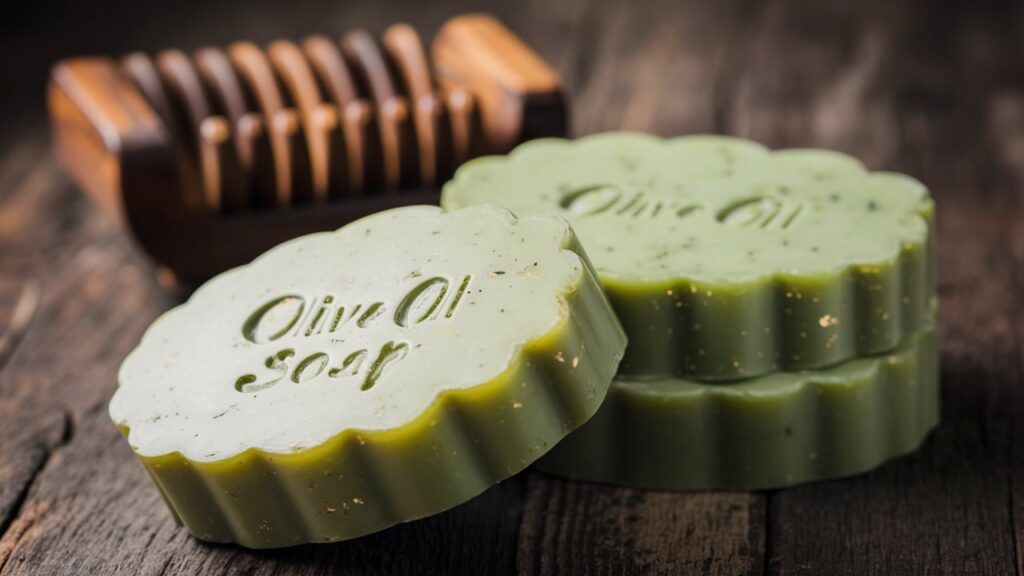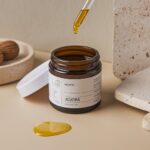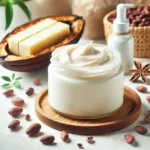- Olive oil has a comedogenic rating of 2-3, meaning it has a moderate chance of clogging pores.
- Research shows it can damage the skin barrier, particularly in those with sensitive or atopic skin.
- Dermatologists advise against using olive oil for acne-prone or oily skin due to its pore-clogging potential.
- Alternatives like hemp seed oil and pumpkin seed oil may be better for acne-prone skin.
Olive oil, a common ingredient in skincare, often raises questions about its potential to clog pores. On the comedogenic scale, which ranks ingredients based on their likelihood to block pores, olive oil scores between 2 and 3. This places it in the moderate range, meaning it may cause issues for certain skin types, particularly those prone to acne or oiliness. However, individual experiences vary widely. Factors like skin type, product formulation, and usage frequency all influence how olive oil interacts with the skin.
Understanding the Comedogenic Scale: Where Does Olive Oil Fall?
The comedogenic scale measures how likely an ingredient is to clog pores, with a rating system from 0 (won’t clog pores) to 5 (highly likely to clog pores). Olive oil sits between 2 and 3 on this scale, indicating a moderate likelihood of pore-clogging. However, comedogenic ratings are not standardized by any governing body and can vary based on individual skin types and conditions.
Research suggests that olive oil’s position on the scale is not a definitive answer to whether it will clog your pores. For some, it might cause issues, while others may find it nourishing and non-irritating. The variability lies in skin types—particularly how individuals with oily or acne-prone skin respond to heavier oils like olive oil.
What the Research Says About Olive Oil and Your Skin
Several scientific studies have analyzed the impact of olive oil on the skin, revealing both benefits and potential downsides.
One notable study involved applying olive oil to the skin of volunteers over four weeks. The findings were eye-opening:
The olive oil caused a reduction in the integrity of the skin barrier (the stratum corneum), and mild erythema (redness) was observed in participants, both with and without a history of atopic dermatitis. The study concluded that topical treatment with olive oil damages the skin barrier. The oil may also have the potential to promote the development of and worsen existing atopic dermatitis
Another research study highlighted olive oil’s heavy consistency, which can foster bacterial growth. This makes olive oil more likely to cause clogged pores and acne, particularly in individuals prone to breakouts.
The key takeaway? Olive oil’s comedogenic potential is moderate but may have an impact on sensitive, oily, or acne-prone skin.
Dermatologists Weigh In: What Experts Say About Olive Oil
Dr. Mona Gohara’s Take: Olive Oil ‘Can Be a Breeding Ground for Bacteria’
Dr. Mona Gohara, a dermatologist with extensive experience in skincare, emphasizes that olive oil is a naturally heavy oil. She explains,
“Olive oil can serve as a breeding ground for bacteria, which may clog pores and lead to acne.”
Does Jojoba Oil Clog Pores? The Facts You Need to Know
According to Dr. Gohara, although olive oil offers anti-inflammatory benefits and is hydrating, its moderately comedogenic nature makes it risky for those prone to breakouts.
“It’s important to understand that olive oil’s impact can vary from person to person, so patch testing is crucial,” she advises.
Dr. Brian Hibler’s Recommendations: “Not the Best for Oily Skin”
Another expert, Dr. Brian Hibler, echoes Dr. Gohara’s concerns. He advises against using olive oil as a moisturizer, particularly for individuals with oily skin.
“Olive oil can worsen oiliness and may even lead to skin rashes or flaking,” says Dr. Hibler. He recommends seeking skincare products specifically formulated for oily or acne-prone skin, advising against heavy oils like olive oil.
“It’s all about tailoring your skincare regimen to your specific needs. People with acne-prone skin are better off using non-comedogenic alternatives like hyaluronic acid or light, water-based moisturizers,” Dr. Hibler concludes.
Dr. Alpana’s Caution: “I Wouldn’t Use It on My Skin”
Dr. Alpana, another seasoned dermatologist, has a similar stance. She highlights olive oil’s comedogenic rating of 2 to 3, pointing out its moderate potential to clog pores.
“I wouldn’t use it on my skin,”
She states firmly, mentioning that olive oil can reduce the integrity of the skin’s top layer, making it a poor choice for individuals with oily skin. “Patch testing is essential if you’re determined to try olive oil, but for most people, I’d recommend against it,” she adds.
User Experiences: Real People Share Their Thoughts
Opinions about olive oil’s comedogenicity vary, with some users experiencing its moisturizing properties and others cautioning against its pore-clogging potential.
A Reddit User’s Success Story: “My Skin Has Never Looked This Good!”
On the popular forum Reddit, one user shared a glowing review of their experience using olive oil as a moisturizer. “My skin has never looked this good!” they exclaim. The user explains that they use extra virgin olive oil as their primary facial moisturizer and have seen dramatic improvements in their skin’s appearance, including the fading of dark spots and reduced acne. “I apply olive oil all over my face and let it soak in,” they share, adding that their skincare routine has remained simple and effective.
Acne.org Forum: “I Wouldn’t Recommend Olive Oil”
Over at Acne.org, opinions lean more critical. In one thread, a user advises against using olive oil for acne-prone skin. “I wouldn’t recommend olive oil,” they caution, suggesting lighter oils such as pumpkin seed oil or hemp seed oil as better alternatives. For those prone to breakouts, olive oil’s heavier consistency poses a risk of clogged pores and irritation, especially when used regularly.
Is Olive Oil Right for You?
While olive oil has natural, hydrating qualities, it may not be suitable for everyone. Those with sensitive, oily, or acne-prone skin are advised to explore other non-comedogenic options, such as hemp seed oil or pumpkin seed oil.
For individuals with dry skin, olive oil may offer some relief. even then, it’s crucial to consider how the oil interacts with your skin’s natural barriers.
Conclusion: Should You Use Olive Oil on Your Skin?
The final verdict? Olive oil is not inherently bad for your skin, but it’s not for everyone either. If you have acne-prone or oily skin, you might want to steer clear or at least proceed with caution. For dry skin types, olive oil might offer some moisturizing benefits, but patch testing is highly recommended before fully incorporating it into your skincare routine.
Remember, skincare is not one-size-fits-all. Always consider your unique skin type, and when in doubt, consult a dermatologist to find the best solution for your skin’s needs.

I’m a devoted organic skincare enthusiast, passionate about the natural, wholesome goodness that organic products bring to our skin.
Organic skincare isn’t just a hobby for me—it’s a lifestyle. Every product I use, recommend, and write about has been carefully chosen for its purity and effectiveness. Everything I write about is backed by scientific studies, dermatologists’ opinions, and user experiences.
I also excel at tackling skincare challenges with innovative, organic solutions.


